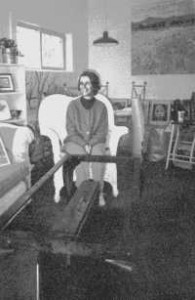Brief by Central Staff
Politics – December 2000 – Colorado Central Magazine
State Sen. Ken Chlouber, a Leadville Republican who represents most of Central Colorado, handily won reëlection on Nov. 7, but voters elsewhere in the state thwarted one of his campaign themes.
Chlouber, who has served in the Colorado General Assembly since 1987, said he was in line for a leadership post in the majority party, and thus would be in a position to do plenty for his district if reëlected.
But it turned out that he won’t be in the majority party. Republicans had held a 19-16 edge in the state senate, but after the election, the Democrats were in control 18-17, for the first time since 1962.
That means there won’t be a committee chairmanship for Chlouber, but he didn’t sound heartbroken when we talked to him a few days after the election.
“In ways, it’s an opportunity,” Chlouber said. “We’ll have to focus on legislation that is good for the people of Colorado, not just on advancing one party. If a bill is going to be approved by the Republican House, the Democratic Senate, and the Republican governor, it will have to be in everybody’s interest.”
Chlouber sometimes sounds fairly hard-line right when he’s stumping, but in Denver, he has gained a reputation among Senate Democrats as one of five or six “squishy Republicans” — one who’ll support Democratic bills when he likes them.
When asked about that reputation, he said “I’d consider it a compliment, because it means I care more about representing my district than about partisanship. I just hope the Democrats in the senate remember that, now that they’re in charge.”
One big effect of the Senate change is that Democrats will have a say in how Colorado will be redistricted after the 2000 census. “That’s probably good for everybody, because it means the districts should be more competitive,” Chlouber said.
He didn’t have strong opposition this year, and “it was a lot more exciting in ’96 when I ran against Linda Powers. She was a tough opponent and it was quite the battle, and it was more fun. Of course, I might not be saying that if I’d lost.”
Some of the new Democratic senators were from districts where Republicans hold a big registration edge. At least one observer blamed the Libertarians (who fielded more legislative candidates than Colorado Democrats did this year) for siphoning away votes that might otherwise have gone Republican.
Chlouber didn’t. Instead, he said, the Republican candidates in some districts were too far to the right to win a general election.
“The primaries in either party tend to be dominated by activists, who are almost always more extreme than the general run of voters,” Chlouber observed. “If either party’s candidates get too far from the mainstream left or right, they’ll lose in the general election to a more centrist candidate.”
Chlouber also said the man to watch in Colorado politics is Mike Feeley, a Lakewood Democrat who’s leaving the state senate on account of term limits.
Feeley made electing a Democratic Senate a priority this year, and he succeeded. Chlouber said “that’s a major accomplishment in a Republican state, and Feeley would be a strong candidate for governor or senator in 2002.”
Feeley ran for the Democratic nomination for governor in 1998, but was defeated in the primary by Lt. Gov. Gail Schoettler, who lost the general election to Republican State Treasurer Bill Owens by only 8,000 votes.

